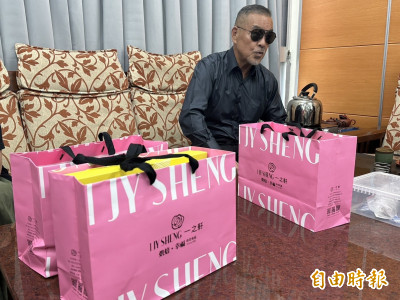《TAIPEI TIMES 焦點》 Cross-strait talks pending bill: minister
By Lauly Li / Staff reporter
The government will not “directly” resume talks with China over a cross-strait trade in goods agreement until a supervisory bill clears the legislative floor, Minister of Economic Affairs Lee Chih-kung (李世光) said on Friday last week.
“We will continue making progress on the cross-strait trade in services and goods pacts when a draft bill of supervisory regulations on cross-strait agreements secures legislative approval,” Lee told a media gathering after he took office on Friday morning.
In other words, the ministry is not restarting formal negotiations over the trade in goods agreement with China for the time being, he said.
From now on, the government will discuss all cross-strait economy-related issues as part of a cross-ministry platform at the Executive Yuan, Lee said.
The ministry has started to analyze the feasibility of easing restrictions on Chinese investment in Taiwan’s industries and regulations on China-bound investment and is to present the results to the platform for deliberation, he said.
He said the government is not “disagreeing” with the idea of opening Taiwan’s markets, but the nation’s industries must become stronger before being exposed to global markets.
If the nation’s industries are not globally competitive, there would be limited products the government can use to negotiate reciprocal terms with other nations, he said.
In an effort to push the government’s “new southbound policy,” Lee said the ministry has reviewed a few local companies’ projects that the new policy could apply to.
Lee said the “new southbound policy” is not simply an economic policy, as the government also has to consider the interests of other nations and overseas Taiwanese businesspeople.
The ministry is to help overseas Taiwanese businesspeople communicate their needs and assist them in operations in accordance with the government’s plans, he said.
Commenting on the government’s energy policy, Lee said that the ministry would play the most important role in developing and promoting “green” energy in the nation, as the government plans to phase out nuclear power and fossil-fuel-based power plants.
Lee said the government would not immediately reduce electricity contribution from fossil-fuel power plants after nuclear power plants are retired in 2025, adding that there is time for the government to develop renewable energy generation.
Solar power would be one of the first renewable energy sources that the government plans to focus on, as many Taiwanese manufacturers already have adequate knowledge and technologies, Lee said.
Given that eight out of the world’s 10 best offshore wind farm locations are on Taiwan’s coast, the government also plans to invest in the development of offshore wind energy, Lee said.
As the government plans to increase the power contribution from renewable energy sources, it would also help to develop the nation’s green energy industry by localizing the supply chains of Taiwan’s industries, Lee said.
The government aims to expand the localization rate of offshore wind farm supply chains to 81 percent by 2020 from this year’s target of 16 percent, he said.
This would create new job opportunities, while also accelerating the development of the green energy industry in Taiwan, he added.
新聞來源:TAIPEI TIMES

















